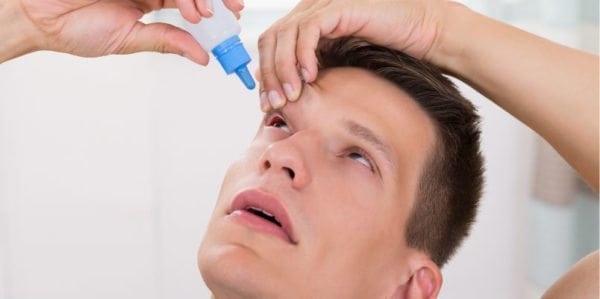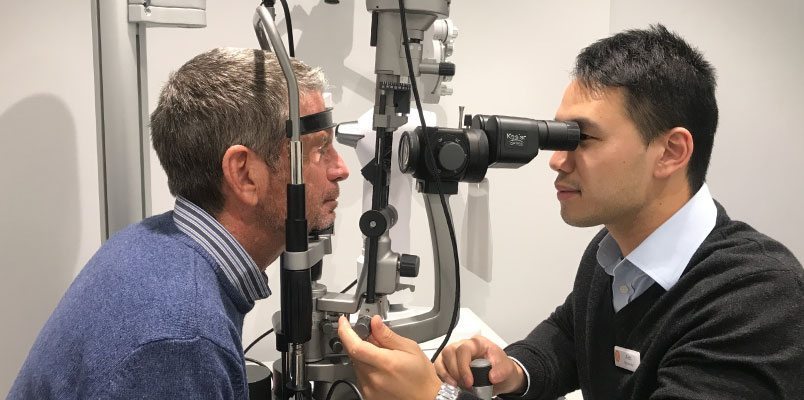We think of “dry eye” as the eyes being, well, dry. Not watery. Not enough tears to lubricate, which means friction and soreness usually relieved by over-the-counter lubricating eye drops. This is true, but what exactly is Dry Eye syndrome and how does this threaten our vision?
 Dry Eye syndrome (DES) is a multifactorial disease of the tears and the ocular surface that affects 15% of the world population, with the value increasing to about 30% in Asians. Dry Eye results in discomfort, visual disturbance and tear film instability with potential damage to thesurface of the eye.
Dry Eye syndrome (DES) is a multifactorial disease of the tears and the ocular surface that affects 15% of the world population, with the value increasing to about 30% in Asians. Dry Eye results in discomfort, visual disturbance and tear film instability with potential damage to thesurface of the eye.
“I suffer from dry eyes,” states Optometrist Dr Alexander Du of Eyecare Plus Kareela. “I first suspected it when I found I had to blink excessively and my eyes were sore and uncomfortable upon waking.”
People with Dry Eye may experience signs and symptoms which they may initially dismiss as something that is normal from time to time and not really a cause for concern. However…
Don’t ignore these warning signs:
- Eye redness
- Eye fatigue
- Light sensitivity
- Stinging, burning or scratchy eyes
- Stringy mucus in or around your eyes
- Itchiness, or a sensation of having something in your eyes
- Difficulty wearing contact lenses
- Difficulty with night time driving
- Fluctuating or blurred vision
- Overproduction of tears followed by a period of dryness

Why? Aside from dry eye being a nuisance and a cause for major discomfort, advanced dry eye can have severe adverse effects on your vision.
How Does Dry Eye Threaten Our Vision?

- Under-lubricated eyes are more susceptible to scratches or infection, as tears are a mix of components that keep the surface of the eye smooth and protected from irritants and infectious pathogens.
- Itchiness is one of the universal symptoms of Dry Eye due to lack of lubrication—either the eyes aren’t producing tears properly or the tears aren’t the right consistency so they evaporate too quickly. Rubbing your eyes which may be your natural instinct when they’re itchy can exacerbate the irritation.
- Vision may be affected because tears on the surface of the eye play an important role in focusing light.
- Deeper injuries to the surface of the eye can lead to corneal scarring, resulting in a hazy cornea and impairing vision.
Alex Du states, “Putting off dry eye treatment is not a good idea. Dry eye is a chronic condition, and it usually gets worse over time. The best time to manage it and treat it is in its early stages.”
“Fortunately, my profession allowed me to detect the early symptoms and do something about my dry eyes. While one can observe telltale signs of Dry Eye, it is not easy to definitively know if you have Dry Eye syndrome without being assessed for it by an eyecare professional.”
Know if you have Dry Eye before it damages your vision!

